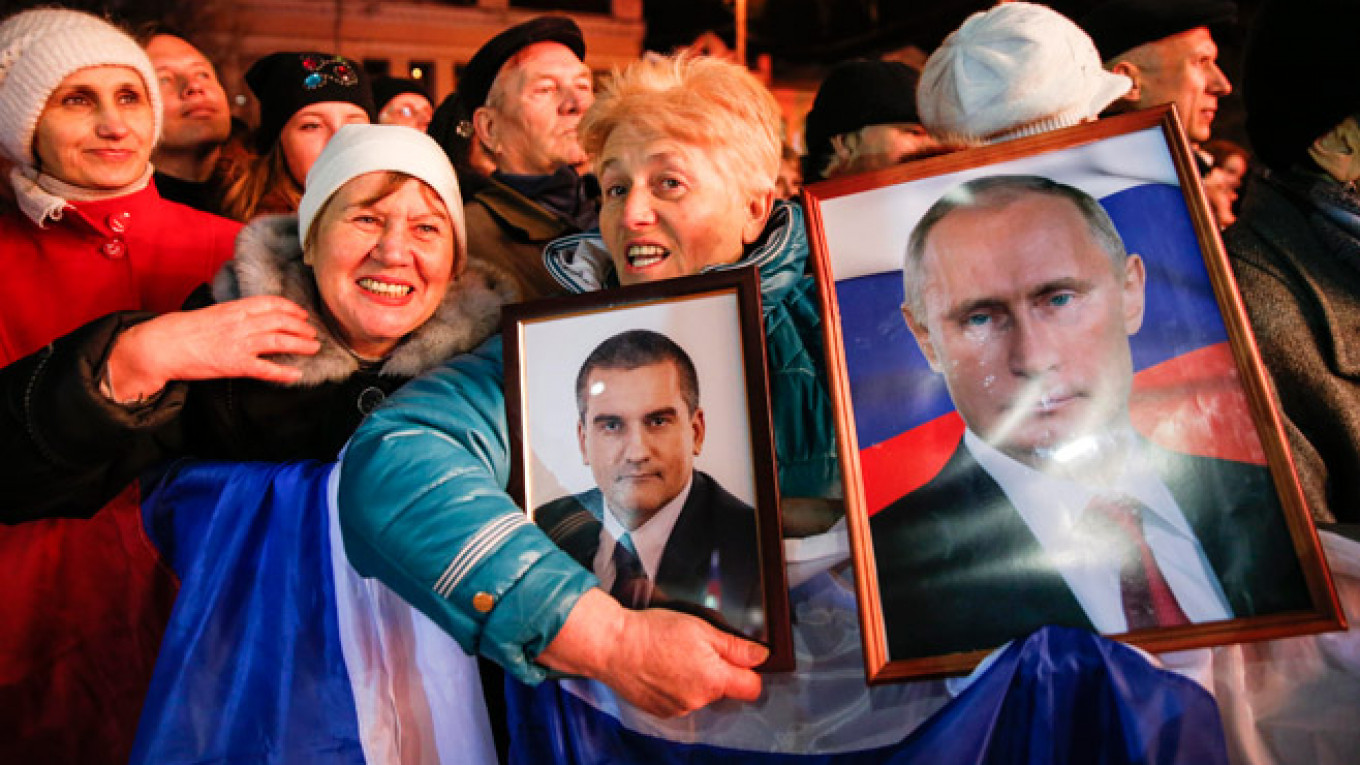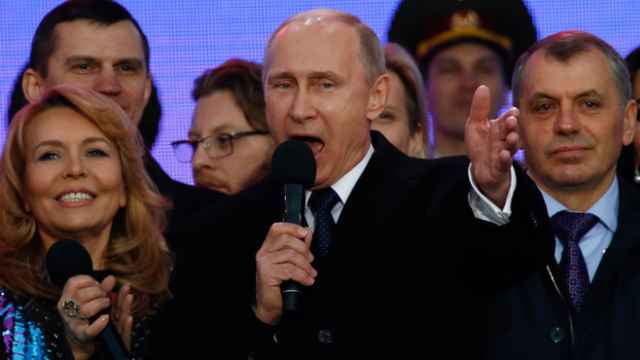Russians have grown increasingly skeptical in the past year with regard to the consequences of Russia's annexation of Crimea last March, a survey by independent pollster the Levada Center revealed Monday.
While 79 percent of respondents believed last May that the annexation would have positive political and economic consequences for Russia, this March only 69 percent were found to agree.
Following Russia's annexation of Crimea, amid the ongoing conflict in Ukraine, Moscow's relations with the West have plunged to lows unparalleled in the post-Cold War era. The tensions have provoked waves of sanctions that — paired with the plummeting price of oil — have dealt a devastating blow to the Russian economy.
The study also revealed a reduced appetite among Russians for territorial expansion, with 57 percent saying they want the country to retain its current borders. Still, 34 percent of respondents said that Russia has the right to absorb former Soviet territories if the rights of ethnic Russians are under threat.
The number of Russians who believe the annexation was driven by a desire to restore "historical justice" by returning Crimea to Russia surged to 40 percent, up from 32 percent in March last year.
Fifty-five percent of respondents said they believe Russia had been guided primarily by an interest in "defending Crimea's ethnic Russian population from violation of its rights and from a threat to its security and well-being."
When asked whether Russians and Ukrainians were "one people," 52 percent said yes. That number was 56 percent one year ago.
The poll was conducted among 1,600 respondents with the margin of error not exceeding 3.4 percent.
A Message from The Moscow Times:
Dear readers,
We are facing unprecedented challenges. Russia's Prosecutor General's Office has designated The Moscow Times as an "undesirable" organization, criminalizing our work and putting our staff at risk of prosecution. This follows our earlier unjust labeling as a "foreign agent."
These actions are direct attempts to silence independent journalism in Russia. The authorities claim our work "discredits the decisions of the Russian leadership." We see things differently: we strive to provide accurate, unbiased reporting on Russia.
We, the journalists of The Moscow Times, refuse to be silenced. But to continue our work, we need your help.
Your support, no matter how small, makes a world of difference. If you can, please support us monthly starting from just $2. It's quick to set up, and every contribution makes a significant impact.
By supporting The Moscow Times, you're defending open, independent journalism in the face of repression. Thank you for standing with us.
Remind me later.






